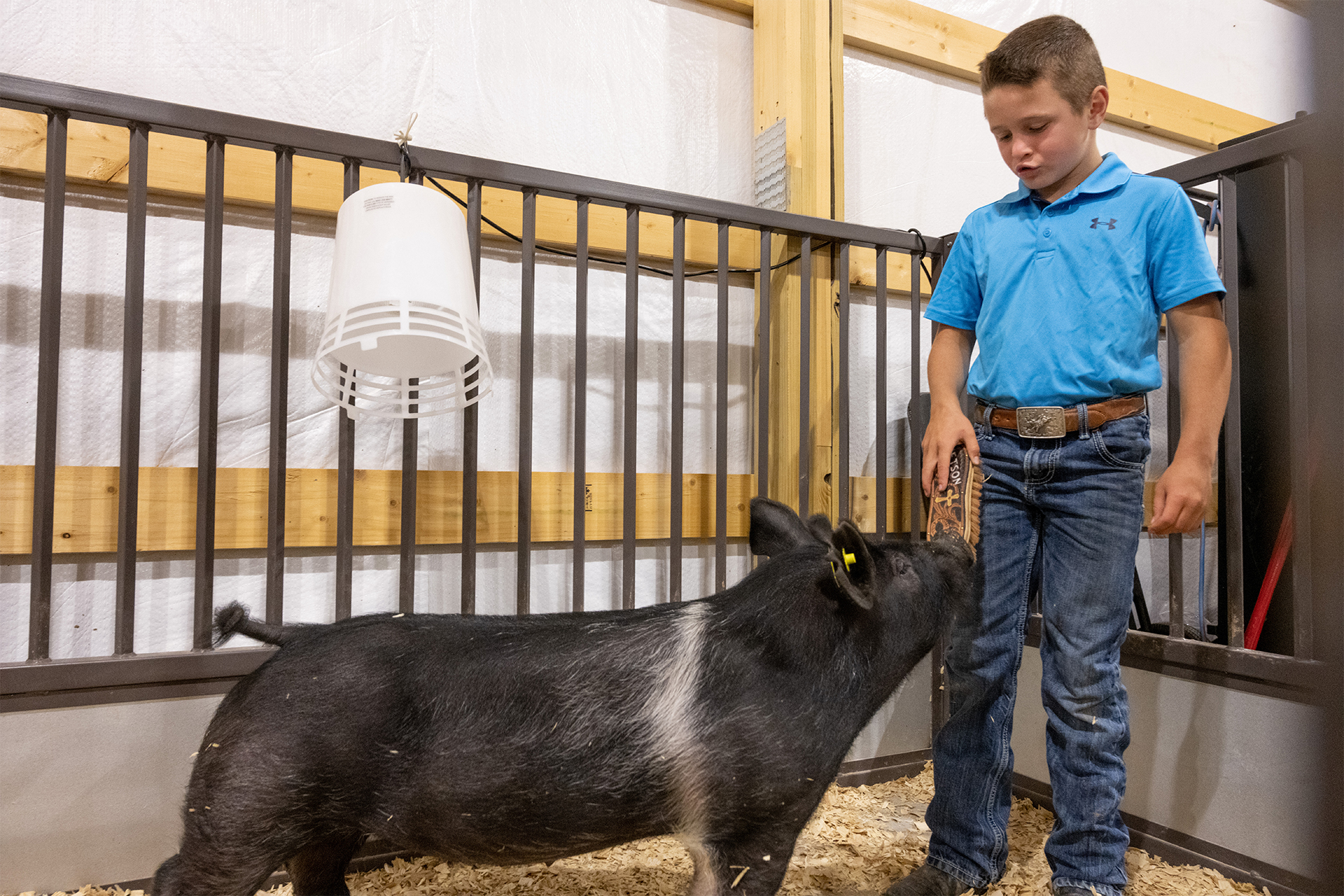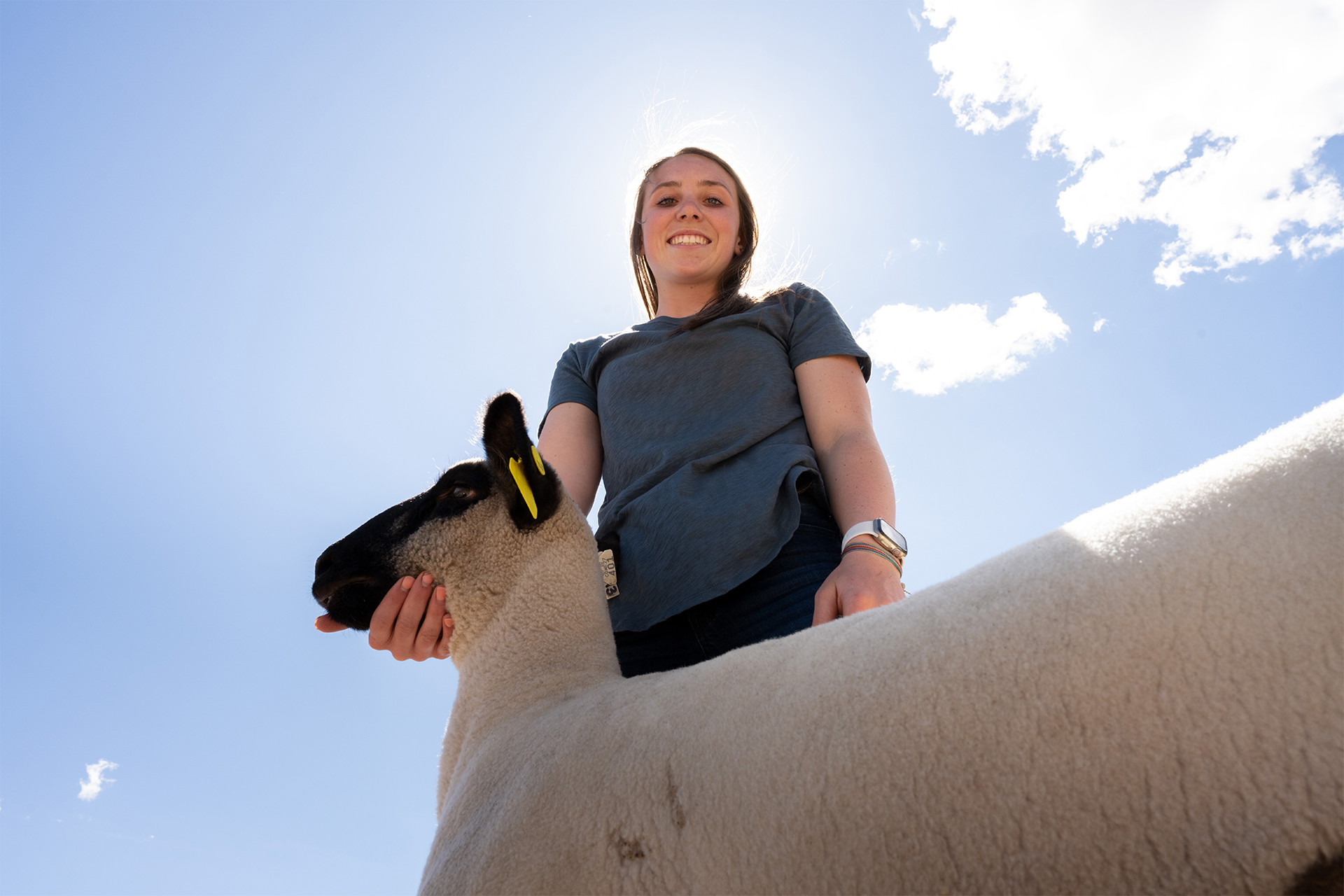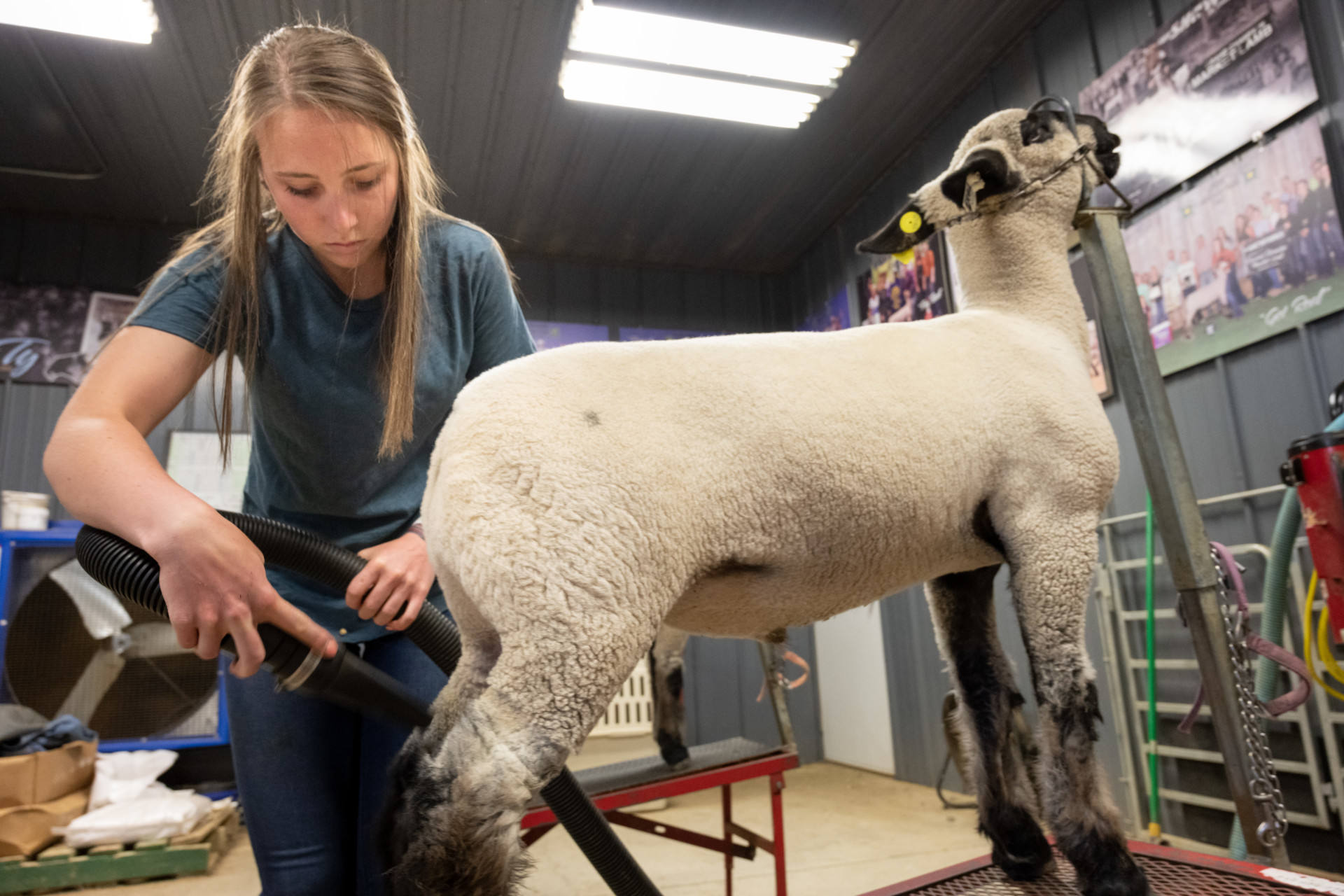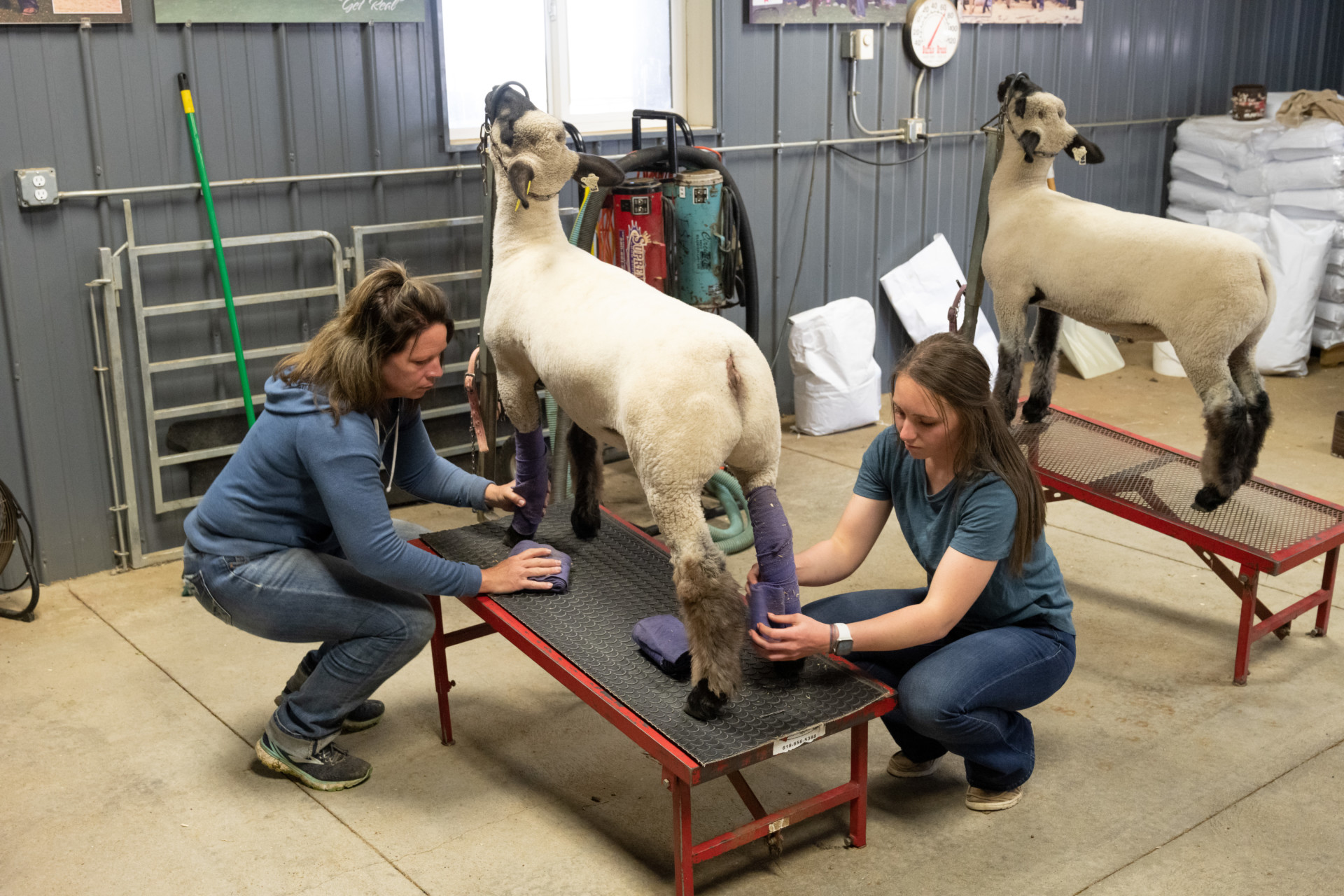4-H carries on
CSU Extension 4-H carries on in the midst of the pandemic story by Maggie Hall Walsh photography by John Eisele published June 2, 2020Stetson Gable just celebrated his ninth birthday, but he already has a full-time job. He’s up every day at dawn, and although he does get plenty of play time, his job doesn’t officially end until evening.
Stetson is the proud custodian of Ringo, a steer, and Lightning, a pig; show animals he is raising as a member of Colorado State University Extension’s 4-H Youth Development Program.
“It’s a big chore to take care of them, but I love it,” the recently graduated second-grader said from his family’s farm in Weld County. “We feed them early and then wash and brush them. We’re teaching them to walk with me. At 10 we check for poop, and then we check again at noon. Then at 3:30 we condition and brush them. Then they eat again later. You learn a lot about life being around animals.”

Stetson Gable and his pig named Lightning.
COVID-19 might have canceled or postponed schools, sports, and other activities this spring and summer, but for 4-H youth who have spent months caring for animals as part of this long-lived program, they have continued to learn valuable leadership and agricultural business skills.
“CSU Extension is working closely with local health officials, county commissioners, and others throughout the state to ensure that public health guidance is followed as we consider the best options to provide programming,” said Blake Naughton, vice president for CSU Engagement and Extension. “Our communities are very resilient, and we are eager to be a part of that strengthening across our many families and individuals that we have the honor to work with. Our commitment remains strong to our mission for our Colorado communities.”
Showing will be different this year


CSU sophomore Lauren Frink is completing her 11th and final year showing animals in 4-H.
CSU Extension, which oversees 4-H Youth Development programs statewide, announced in May that although virtual programming is still preferred for a majority of its programming in support of the health and well-being of our communities, offices across Colorado are working closely with their local public health offices and county government for any face-to-face activities that may occur.
Many programs, including those associated with county fairs, will not look the same as previous years due to public health restrictions, but Stetson and other 4-H members raising animals are still gaining valuable skills, even if showing their animals may be different this summer.
“Nothing has really changed in our lives getting these animals ready, but showing will be different,” said Lauren Frink, who is completing her 11th and final year showing animals in 4-H. The CSU student studying animal sciences said 4-H is a family affair, and is disappointed that her final county and state fair season will be so unusual, without as many pre-fair show opportunities and large gatherings of friends who have become close throughout the years.
Like Stetson, Lauren spends a good portion of her days tracking her expenses; feeding, walking and grooming her show animals – in her case sheep – and learning about animal health and welfare to complete her 4-H livestock project and to make sure they are show-ready for fair season. Her mom, Amy, has been at her side throughout her 4-H career as a 15-year leader of Wyatt 4-H in Ault, near their home.
Virtual programming

Lauren Frink and her mother Amy Frink work with Lauren’s sheep to keep them show ready for the possibility of 4-H competitions.
Since the pandemic began, monthly in-person 4-H meetings have been canceled, but Amy Frink has kept in touch with the 50 or so members in the chapter and provided encouragement to connect in virtual programming, whether their interests are cake decorating, sports shooting, raising show animals or 4-H STEM activities.
“We’re just all trying to stay on task and help these kids tell the story of how important agriculture is,” she said. “I have been so impressed. None of these kids have given up. 4-H is such an important part of their lives.”
Jean Glowacki, director of 4-H Youth Development at CSU Extension, praised the faculty, staff, volunteers, families, and community supporters for their collaboration and commitment to maintaining high-quality 4-H Youth Development Programming while ensuring the safety and well-being of all participants and community members in these very challenging times and circumstances.
Thousands of Colorado 4-Hers are in the same boat as Stetson and Lauren. They have worked hard on their projects and now, due to the pandemic, are unsure how, if or when they will be able to show off their handiwork.
“Participants in CSU Extension’s 4-H youth development program are able to complete their projects without showing at the fair, but we know it is a highlight for them and so many of our community members that come out to support the hard work of these outstanding youth,” said Ashley Stokes, associate vice president for Engagement and Extension at CSU.
But as the 4-H motto states, the organization is dedicated to helping young people, “Make the best better,” and the determination and flexibility of the youth – whether a first-year member learning the basics, or a celebrated titleholder in her last hurrah in the show ring – is impressive.
“Even if I don’t get to show my animals, I get to learn so much,” Stetson explained. “I have learned that I just love being around cattle and pigs. I have learned how to communicate with animals and so many other life lessons … mostly patience.”